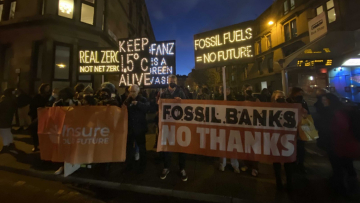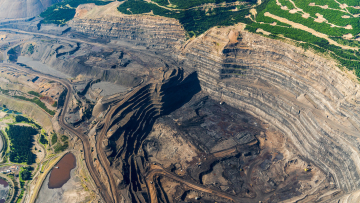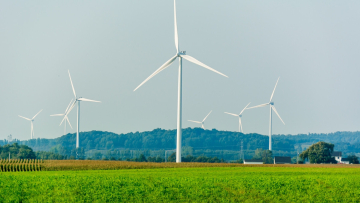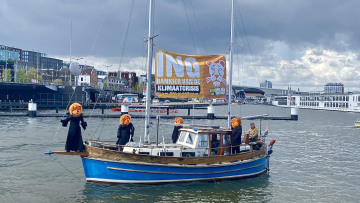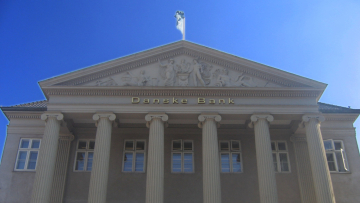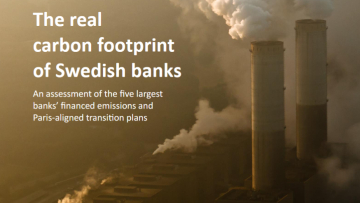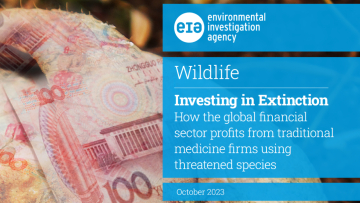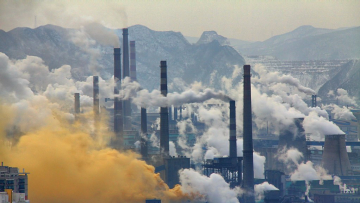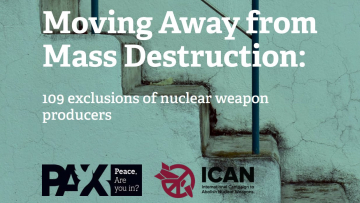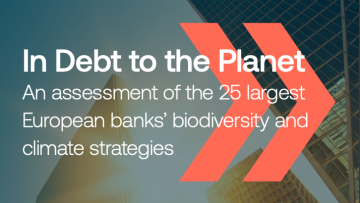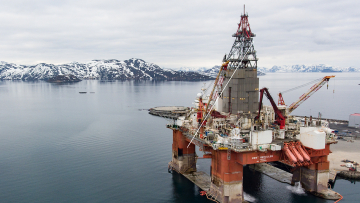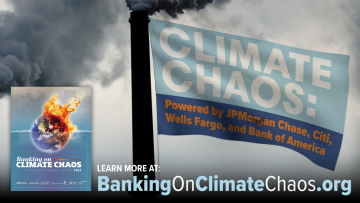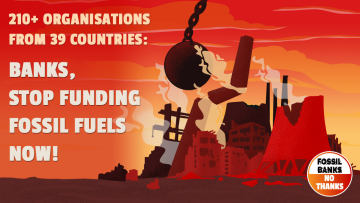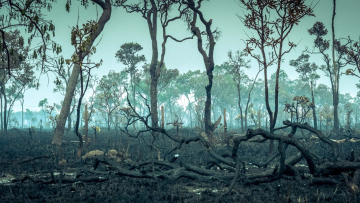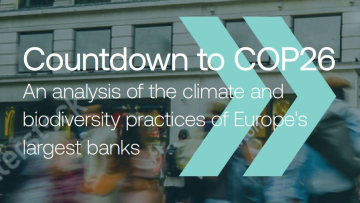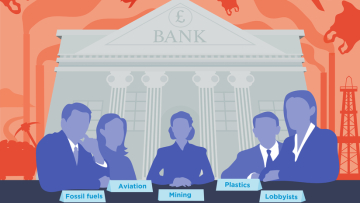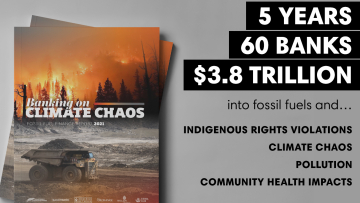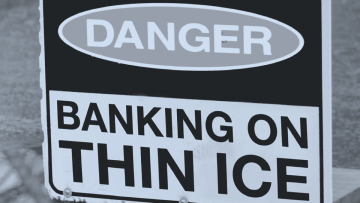
Active
This profile is actively maintained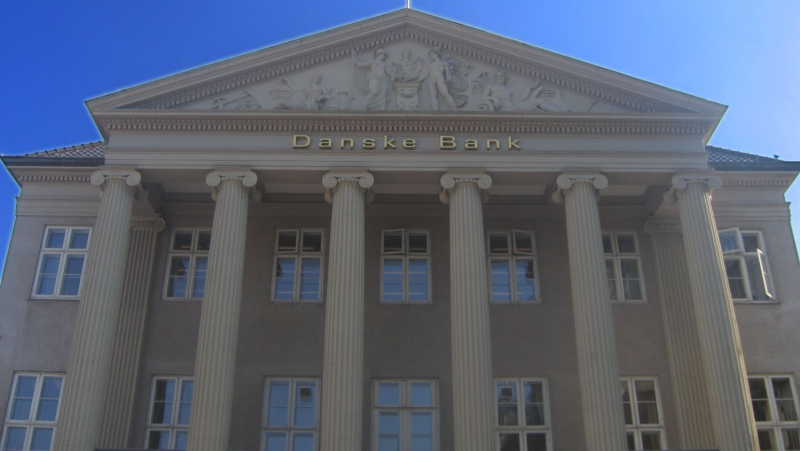
Active
This profile is actively maintained| Website | http://www.danskebank.com |
| Headquarters |
Holmens Kanal 2-12
1092 Copenhagen
Denmark
|
| CEO/chair |
Carsten Egeriis CEO |
| Supervisor | |
| Ownership |
listed on NASDAQ OMX
Danske Bank's shareholder structure can be accessed here. |
Danske Bank is a Danish bank, founded in 1871 as Den Danske Landmandsbank, Hypothek- og Vexelbank i Kjøbenhavn. Headquartered in Copenhagen, it is the largest bank in Denmark and a major retail bank in the northern European region with over 5 million retail customers.
Danske Bank's most important sustainability commitments can be found at the website sections listed below.
Danske Bank is linked to a number of companies and projects that BankTrack considers controversial (so called Dodgy Deals), e.g. as a current or past financier or through an expression of interest. The profiles below provide more details on the nature of Danske Bank's link to these deals.
Danske Bank operates a whistleblowing channel, which it states can be used by individuals or communities who may be negatively impacted by the bank’s business activities. Human rights issues can be raised here.
Stakeholders can also lodge a complaint with the OECD National Contact Point (see OECD Watch Guidance).
This page evaluates Danske Bank's responses to instances of alleged human rights violations linked to its finance, raised by civil society organisations. It is not intended to be exhaustive, but covers selected impacts raised by BankTrack and other civil society partners since 2016. For the full scoring methodology, see here. For more information about BankTrack's evaluation of bank responses to human rights impacts, see the 2021 report "Actions speak louder: assessing bank responses to human rights violations".
Banks and Climate
The 2025 Banking on Climate Chaos report showed that Danske Bank provided $4.9 bn in financing to the fossil fuel industry between 2021 and 2024. In 2024 only, Danske Bank provided $1.3 bn, including $219 mn for oil, gas and coal companies expanding fossil fuels. Find further details on Danske Bank's fossil fuel portfolio and how it compares to other large banks globally on the Banking on Climate Chaos website below.
Partner organisation Reclaim Finance tracks the coal, oil and gas policies of financial institutions, including banks, in their Coal Policy Tool (CPT) and the Oil and Gas Policy Tracker (OGPT). BankTrack works closely with Reclaim Finance and endorses their policy assessments. Find further details on their assessment of Danske Bank’s fossil fuel policy below.
False Solutions Tracker
The purpose of the False Solutions Tracker is to give a clear overview of energy technologies that fall under banks' individual sustainable finance commitments. The tracker lists 11 energy technologies that are usually associated with the energy transition and the decarbonisation of the economy. These technologies are defined here and classified in three categories:
-
Real solutions: Technologies that deliver on a Just Transition towards Energy Democracy. BankTrack considers these technologies as real solutions only if and when they do deliver Energy Democracy.
-
Solutions under strict conditions: Energy technologies that could be real solutions if they deliver on a Just Transition towards Energy Democracy but that could also be false solutions. This is the case of hydrogen and hydropower. On one hand, fossil-free and green hydrogen could be a real solution under certain conditions. However, fossil-based hydrogen and nuclear hydrogen are always false solutions. On the other hand, hydropower lifespan extension could also be a real solution under strict conditions while hydropower expansion is a false solution.
-
False solutions: Energy technologies that are not aligned with a just transition towards Energy Democracy.
For each one of the 11 energy technologies, the tracker indicates if it is included in bank's individual sustainable finance commitments:
For Real solutions:
- : Yes, the bank includes its finance towards this energy technology in its sustainable finance reporting.
- : Yes, the bank includes its finance towards this energy technology in its sustainable finance reporting, but under certain conditions. In this case, those conditions are mentioned in the "relevant policy document" section for each bank.
- : No, the bank does not include its finance towards this energy technology in its sustainable finance reporting.
- : It is unclear whether the bank includes or not its finance towards this energy technology in its sustainable finance reporting.
For solutions under strict conditions and for false solutions:
- : Yes, the bank includes its finance towards this energy technology in its sustainable finance reporting.
- : Yes, the bank includes its finance towards this energy technology in its sustainable finance reporting, but under certain conditions. In this case, those conditions are mentioned in the "relevant policy document" section for each bank.
- : No, the bank does not include its finance towards this energy technology in its sustainable finance reporting.
- : It is unclear whether the bank includes or not its finance towards this energy technology in its sustainable finance reporting.
False Solutions Tracker expansion
The purpose of the False Solutions Tracker is to give a clear overview of energy technologies that fall under banks' individual sustainable finance commitments. The tracker lists 11 energy technologies that are usually associated with the energy transition and the decarbonisation of the economy. These technologies are defined here and classified in three categories:
-
Real solutions: Technologies that deliver on a Just Transition towards Energy Democracy. BankTrack considers these technologies as real solutions only if and when they do deliver Energy Democracy.
-
Solutions under strict conditions: Energy technologies that could be real solutions if they deliver on a Just Transition towards Energy Democracy but that could also be false solutions. This is the case of hydrogen and hydropower. On one hand, fossil-free and green hydrogen could be a real solution under certain conditions. However, fossil-based hydrogen and nuclear hydrogen are always false solutions. On the other hand, hydropower lifespan extension could also be a real solution under strict conditions while hydropower expansion is a false solution.
-
False solutions: Energy technologies that are not aligned with a just transition towards Energy Democracy, such as solid biomass, biofuels and carbon capture, utilisation and storage (CCUS).
For each one of the 11 energy technologies, the tracker indicates if it is included in bank's individual sustainable finance commitments:
For Real solutions:
- : Yes, the bank includes its finance towards this energy technology in its sustainable finance reporting.
- : Yes, the bank includes its finance towards this energy technology in its sustainable finance reporting, but under certain conditions. In this case, those conditions are mentioned in the "relevant policy document" section for each bank.
- : No, the bank does not include its finance towards this energy technology in its sustainable finance reporting.
- : It is unclear whether the bank includes or not its finance towards this energy technology in its sustainable finance reporting.
For solutions under strict conditions and for false solutions:
- : Yes, the bank includes its finance towards this energy technology in its sustainable finance reporting.
- : Yes, the bank includes its finance towards this energy technology in its sustainable finance reporting, but under certain conditions. In this case, those conditions are mentioned in the "relevant policy document" section for each bank.
- : No, the bank does not include its finance towards this energy technology in its sustainable finance reporting.
- : It is unclear whether the bank includes or not its finance towards this energy technology in its sustainable finance reporting.
Banks and Human Rights
BankTrack assessed Danske Bank in its 2024 Global Human Rights Benchmark, where it achieved 7 points out of 15 and was ranked as a “follower”.
The bank scored 0.5 out of 3 points on the new “specific rights indicators”, which assess how banks address human rights defenders, Indigenous Peoples’ right to Free, Prior and Informed Consent and environmental rights in their policies and practices.
In addition, Danske Bank scored 0.25 out of 3 on how it responds to alleged human rights violations linked to its finance, which were raised by civil society organisations. More information is detailed in the “Accountability” section of this profile.
The table below shows BankTrack's assessment of how Danske Bank has implemented the UN Guiding Principles on Business and Human Rights. Please click on 'expand all details' and 'explanation' for further information on the methodology.
Our policy assessments are always a work in progress. We very much welcome any feedback, especially from banks included in the assessments. Please get in touch at humanrights@banktrack.org.
Global Human Rights Benchmark 2024
Tracking the Net Zero Banking Alliance
Banks and Steel
As part of the Net Zero Banking Alliance (NZBA), Danske Bank is required to set interim targets for 2030 for high emission priority sectors. For Danske Bank, this includes its lending to the steel sector. You can see Danske Bank’s iron and steel decarbonisation targets, and its progress towards meeting them in our NZBA steel targets compliance tracker:
Reclaim Finance tracks the metallurgical coal policies of financial institutions, including banks, in their Coal Policy Tool. BankTrack works closely with Reclaim Finance and endorses their policy assessments. Find further details on their assessment of Danske Bank metallurgical coal policy below.
Banks and Russian Aggression in Ukraine
BankTrack is keeping track of the public response of the Danske Bank to Russia's illegal invasion of Ukraine. Danske Bank has publicly condemned the war. Danske Bank is considered by Leave-Russia.org to be "continue operations" its operations in Russia. We consider its exposure to Russia as limited. Danske Bank supports the Russian fossil fuel industry through investments. For further details, see the table linked below.

